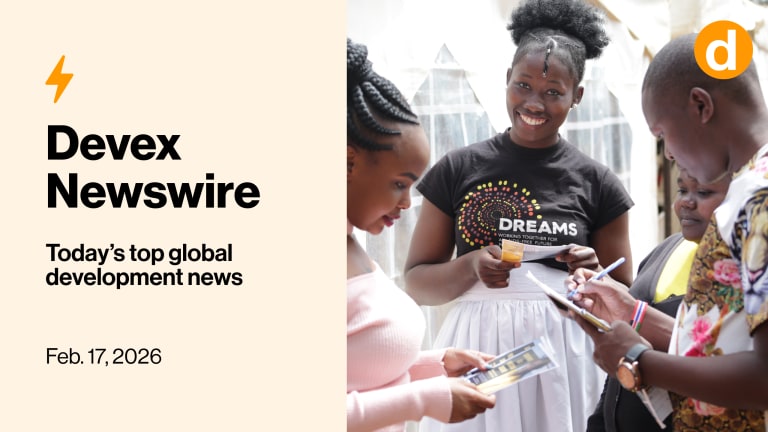
I’ve seen the failures, but I’ve also seen the successes of relief and development work.
These successes have been accelerated by an unprecedented global commitment to help the world’s neediest people. Called the Millennium Development Goals, these served as a road map to help spur governments, nongovernmental organizations, faith communities and civic groups worldwide to help lift 600 million people out of extreme poverty. Now that we are approaching the end of these time-bound goals, it is important to reflect on success and why setting global goals helps continue forward progress.
For instance, global goals have reduced global poverty rates in half. In 1990, 25 percent (160 million) of all children under 5 were moderately or severely underweight. In 2012 that proportion had decreased to 15 percent. In 1990, 40 percent of children under 5 worldwide (191 million) experienced some degree of stunted growth. In 2012 that proportion had decreased to 25 percent.
The maternal mortality ratio dropped 45 percent between 1990 and 2013, and the proportion of deliveries in developing regions attended by skilled health personnel rose from 56 percent to 68 percent.
And when it comes to access to water, the world has met the target of halving the proportion of people without access to improved sources of water. More than 200 million people living in slums gained access to improved water sources, improved sanitation facilities and durable or less crowded housing.
But, 1.2 billion people are still living in extreme poverty and in sub-Saharan Africa, stunting and underweight children increased between 1990 and 2012. Further, the maternal mortality ratio in developing regions remains 14 times higher than in the developed regions. And in terms of sanitation, 2.5 billion in developing countries still lack access to improved sanitation facilities.
The question we now face is clear: Will we continue to make progress in these vital areas in the years ahead? Will we set a new round of goals to galvanize attention and unleash human goodwill — to improve baselines of well-being, to build momentum toward the common good and to increase resilience when natural or man-made crises hit?
These questions touch me in a very personal and powerful way right now.
During the research and travels that lead up to my book, “Everything Must Change,” I spent time in the East African nation of Burundi. The people of that little Maryland-sized nation won my heart. I’ve made several return trips, and I stay in close touch with many dear friends there.
I’ve had the privilege of working with an array of church-based organizations that have done amazing work in recent years — strengthening communities, working for tribal reconciliation, helping the poorest of the poor, building social and economic infrastructure. In recent weeks, we’ve looked at the prospect of years of progress being wiped out by the potential of civil war, sustained national breakdown or both.
The crisis started when a corrupt and inept president decided to seek an unconstitutional third term, which pushed people to go to the streets in protest. Pierre Nkurunziza’s personal — and illegal — militia responded with violence, threats and repression; an unsuccessful coup launched by a general only strengthened the president’s hand.
Officially, 110,000 have fled as refugees, with numbers growing hourly. Unofficially, three times that number have fled Burundi. Those who remain in the country live in dread, unable to speak freely for fear of being taken, tortured, imprisoned or killed.
I just spoke to a good friend who had to escape the country by land just days ago. As one of the leaders of the protests, he knew that he was on the president’s hit list. He described conditions in the refugee camps in neighboring Rwanda, Tanzania, the Democratic Republic of the Congo and Uganda, where cholera has already broken out and prospects are bleak. Inside the country, despite the president’s claim that all is well (he even was televised playing soccer), unrest, fear and rumors abound.
Business in the capital city has ground to a halt. The dreaded Interhamwe, or the villains of the Rwandan genocide, have returned to help the president, which increases the possibility of a Rwandan incursion into the country.
I asked my friend what he thinks will happen.
“Our lives don’t matter enough to the U.S. or European nations for them to intervene,” he said. “And each member of the East African Economic Community has so many of its own problems that it is unlikely they can be of any substantive help.”
The only hope he sees involves the president’s regime going bankrupt sooner rather than later. Teachers and other civil servants have already gone five months with no pay, and when money runs out for the president, his term will end. And that is where the international community can make a real difference: by withholding aid from the president’s regime, it can hasten the transition to a more stable government and better future for the Burundian people.
Then, when democracy is restored, a new round of aid will matter more than ever.
The situation in Burundi can teach us a lot about how international aid can be leveraged to make a difference in the long term. Simple handouts can too easily be abused. But aid that is targeted — as it was through the MDGs — can make a positive difference, along with aid that is released only when carefully monitored milestones are met.
There is much to do, in Burundi, the world’s second-poorest country, and elsewhere in our world. A new round of international commitments can again galvanize global goodwill and wisdom to build a better world for all God’s children. Throwing dollars alone doesn’t solve problems. But generosity — together with justice and accountability — is an essential ingredient of a better world.
In partnership with the U.N. Foundation and Fenton, Devex is examining the progress made toward achieving the Millennium Development Goals and U.S. contributions to spur global progress in our special “#GlobalGoalsWork” series. Join the conversation using #GlobalGoalsWork.








